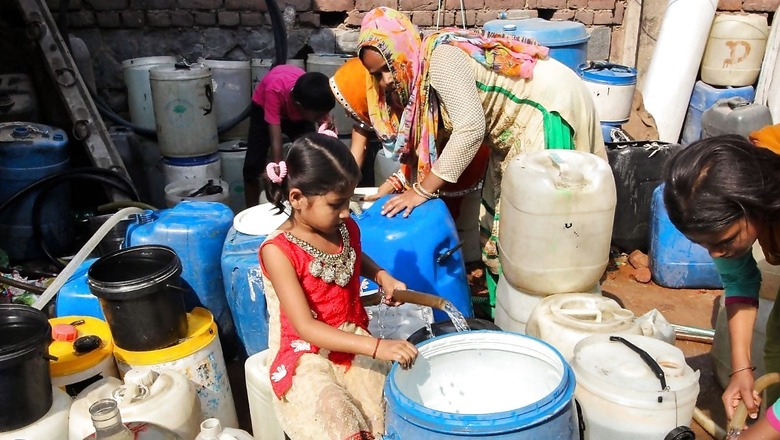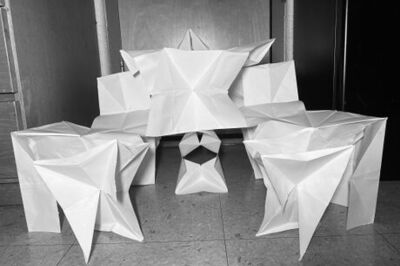
views
The dreaded climate change is here! Bengaluru, the Silicon Valley of India, and many parts of Karnataka are the moment facing the worst water crisis aggravated by the failure of both southwest and northeast monsoons in the state.
As a result, the metropolitan city has seen declining groundwater levels, diminishing reservoirs, dried bore-wells and water supply cuts. Women carrying half empty buckets of water queueing in front of the water tankers is now a common site in Bengaluru.
The decline in Cauvery water river, on which the Bangalore Water Supply and Sewerage Board (BWSSB) depends, has impacted the drinking water supply and irrigation. An official at the Board, The Times of India, quoted as saying the Krishnaraja Sagar Dam in Madhya district from where Cauvery water is supplied to Bengaluru does not have adequate water due to summer.
The India Meteorological Department (IMD) has attributed the prime reason for scanty rainfalls in the state in 2023 due to the El Nino effect.
On March 6, Bengaluru recorded a temperature of 36 degrees Celsius. The city recorded highest temperature in March in 1986.
The rapid urbanisation has also cost the environment, with Bengaluru losing 79% of water bodies and 88% of green cover over the last four decades. Areas covered by concrete have increased 11-fold, according to studies at the Indian Institute of Science (IISc).
What are the Karnataka People Saying?
According to reports, residents of Bengaluru have complained about the water tanker companies charging higher prices. A 1,000-litre tanker would cost between Rs 600 and Rs 800 but now it costs more than Rs 2,000, as mentioned by several reports.
Among the 236 taluks in Karnataka, 223 have been drought-hit, with 219 severely affected. An official said dry spell affected water supply both from the Cauvery, and borewells that are two of Bengaluru’s principal sources of water.
The Residents’ Welfare Association (RWA) in Bengaluru are also not taking adequate measures to look into the water crisis.
“The crisis may worsen if there is no good rain in the coming days as already close to half the borewells have dried up,” Hindustan Times quoted an official as saying.
What is the Govt Doing?
The Bruhat Bengaluru Mahanagara Palike (BBMP) has set up a control room at its head office to tackle water supply challenges in 110 villages across 35 wards. The civic body has also appointed nodal officers to manage drinking water issues.
Deputy Chief Minister DK Shivakumar announced that the government would seize unregistered water tankers if their owners fail to register with the authorities by March 7.
“Of the total 3,500 water tankers in Bengaluru city, only 10 per cent, that is 219 tankers, have registered with the authorities. The government will seize them if they don’t register before the deadline. Water is not the property of any individual but is a resource that belongs to the government. The government has the right to take control of water sources,” he had said at a press conference.
Milk tankers used by the Karnataka Milk Federation will also be used for water supply.
Each MLA in Bengaluru city has been granted Rs 10 crore to address water scarcity in their respective constituencies.
Additionally, the BBMP has earmarked Rs 148 crore, while the BWSSB has allocated Rs 128 crore to tackle the water issue.

















Comments
0 comment